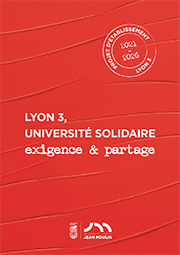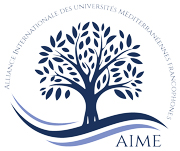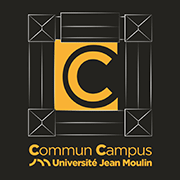AccueilRechercheProgrammes et productions scientifiquesThèsesThèses soutenuesThèses soutenues - 2006-2021Thèses soutenues - 2021
-
Partager cette page
- Recherche,
- Éthique et développement durable,
DESCHAMPS Amélie
Faire végétaliser l’espace public aux habitants : quelle participation pour quelle ville durable ?
Publié le 16 février 2022 – Mis à jour le 25 janvier 2023
Thèse en Sciences sociales, soutenue le 20 octobre 2021.
Les programmes municipaux de végétalisation participative se multiplient au sein des villes. Ils permettent aux habitants de végétaliser l’espace public, avec des jardins partagés ou des opérations de rue (jardinage de pied d’arbre, fosse dans les trottoirs, bac de culture, etc.). L’objectif de cette thèse est d’étudier ces dispositifs dans trois contextes urbains français différents, Lille, Lyon et le treizième arrondissement de Paris. Une méthode mixte croisant enquête quantitative et enquête qualitative est utilisée. Cette thèse conduit à plusieurs résultats. D’abord, la mise en place de dispositifs de végétalisation participative s’est faite à partir d’initiatives habitantes informelles, peu à peu institutionnalisées par les municipalités depuis la fin des années 1990. Ensuite, l’élaboration de ces politiques a contribué à la création d’un nouveau modèle de gouvernance, pour la co-construction d’un aménagement urbain, entre habitants et municipalité. Cependant, la participation des habitants à la végétalisation de la ville reproduit les inégalités urbaines préexistantes. Ces initiatives sont diversement réparties sur les territoires urbains et se concentrent en particulier dans les quartiers au niveau de vie moyen voire aisé. Les pratiques de jardinage des habitants prennent également part à ces inégalités en mettant en avant des normes environnementales qui peuvent se révéler discriminantes. Enfin, la végétalisation participative montre un potentiel variable dans sa contribution à la renaturation de l’espace urbain. Elle concourt à la végétalisation d’espaces publics de proximité. Toutefois, l’engagement des habitants dans le temps long reste une limite du dispositif.
Mots-clés : Végétalisation urbaine ; participation habitante ; inégalités environnementales ; aménagement et politiques publiques ; méthode mixte
Municipal participatory greening scheme are increasing in cities. Inhabitants are allowed to green public spaces with shared gardens or street operations (gardening at the foot of trees, pits in the pavement, flowerpots, etc.). This thesis aims to study these schemes in three different French urban contexts, Lille, Lyon and the thirteenth arrondissement of Paris. We use a mixed method, combining quantitative and qualitative survey. This thesis leads to several results. Firstly, the implementation of participatory greening schemes was based on informal residents’ initiatives, which have been gradually institutionalized by municipalities since the end of the 1990s. Then, the development of these policies contributed to the creation of a new model of governance, for the co-construction of urban planning, between inhabitants and the municipality. However, inhabitants’ participation in the greening of the city reproduces pre-existing urban inequalities. These initiatives are unevenly distributed over the urban territories and are concentrated in neighborhoods with an average or even well-off standard of living. Inhabitants’ gardening practices also contribute to these inequalities by putting forward environmental standards that can be discriminating. Finally, participatory greening shows a variable potential in its contribution to the renaturation of urban space. It contributes to the greening of local public spaces. However, the commitment of residents over the long term remains a limitation of the scheme.
Keywords : Urban greening; citizen participation; environmental justice; planning and policy; mixed method
Directrice de thèse : Lise BOURDEAU-LEPAGE
Membres du jury :
- Mme BOURDEAU-LEPAGE Lise, Directrice de thèse, Professeure des Universités, Université Jean Moulin Lyon 3,
- Mme BLANC Nathalie, Rapporteure, Directrice de recherche, Laboratoire Dynamiques Sociales et Recomposition des Espaces, LADYSS, CNRS, Paris,
- Mme EMELIANOFF Cyria, Rapporteure, Professeure des Universités, Le Mans Université, laboratoire ESO, Le Mans,
- Mr JOLIVEAU Thierry, Professeur des universités, Université Jean Monnet, Saint Etienne,
- Mr CLERGEAU Philippe, Professeur émérite, Muséum National d'Histoire Naturelle, Paris,
- Mr GOLLAIN Vincent, Directeur du département économie et développement local, Institut Paris Région, Paris.
Présiden du jury : Philippe CLERGEAU
Documentation
Mise à jour : 25 janvier 2023







